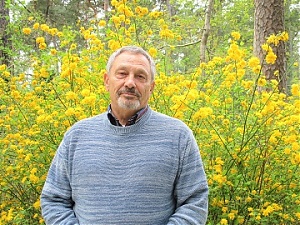Education and Science, EU – Baltic States, Modern EU
International Internet Magazine. Baltic States news & analytics
Tuesday, 23.12.2025, 08:48
Youth in shaping perspective social progress: teachers’ role
 Print version
Print version |
|---|
The foundations of a true European Education Area have been
laid some years ago by the EU and the member states’ efforts to strengthen excellence
and inclusion, as well as creating a future in which learning abroad will
become standard for most of young people. European Universities are being
developed, a game changer for students and Europe’s higher education landscape.
See some articles on European education area and universities
in “The Baltic Course”:
- Creating European Education Area: challenges for
the Baltic States. In:
http://www.baltic-course.com/eng/modern_eu/?doc=138222&ins_print;
- Mobility and education progress in modern EU. 23.07.2018. In:
http://www.baltic-course.com/eng/modern_eu/?doc=141684&ins_print;
- European Education Area by 2025: potentials for
growth, jobs and unity. In:
http://www.baltic-course.com/eng/education/?doc=135103&ins_print;
- European universities’ alliance for education quality. In:
http://www.baltic-course.com/eng/modern_eu/?doc=150011&ins_print
New recent EU initiatives like the European Solidarity Corps and DiscoverEU
are enabling young people to bring positive change to communities and
experience what it feels like to be Europeans.
Towards a European Education Area
It is in the shared interest of all EU Member States to
harness the full potential of
Education and culture are within the member states’ own
competence; however, the EU institutions assist in numerous ways education and
training. The reason is that progressive education is a good driver for job
creation, economic growth and
improved social cohesion, as well as a means to experience European identity in
all its diversity.
The Commission is developing initiatives to help work
towards a European Education Area. The vision contained within this policy is
that, across the EU:
- spending
time abroad to study and learn should become the norm,
- school
and higher education qualifications
should be recognised across the EU,
- knowing
two languages in addition to one’s mother tongue should be standard,
- everyone
should be able to access high-quality education, irrespective of their
socio-economic background, and
- a
person should have strong sense of identity
as a European, following the Europe’s cultural heritage and its diversity.
Source: https://ec.europa.eu/education/education-in-the-eu/european-education-area_en
To keep up EU’s commitment to youth, the Commission’s
intention is to double funding for the Erasmus program. For example, an
extended program Erasmus+ is the
EU's program to support education, training, youth and sport in Europe. Its
budget of €14.7 billion will provide opportunities for over 4 million Europeans
to study, train, and gain experience abroad.
Set to last until 2020, Erasmus+ doesn't just have
opportunities for students: merging seven prior programs, it has opportunities
for a wide variety of individuals and organisations.
More in: https://ec.europa.eu/programmes/erasmus-plus/about_en
The second European Education Summit will be hosted by the EU Commissioner for education and culture in Brussels (26 September) and will explore the next steps for the member states in progressive education. The second education summit is focusing on the teaching profession and is entitled: ‘Teachers first: excellence and prestige for the European Education Area’.
Source: https://ec.europa.eu/education/summit_en?msg_pos=2








 «The Baltic Course» Is Sold and Stays in Business!
«The Baltic Course» Is Sold and Stays in Business!

